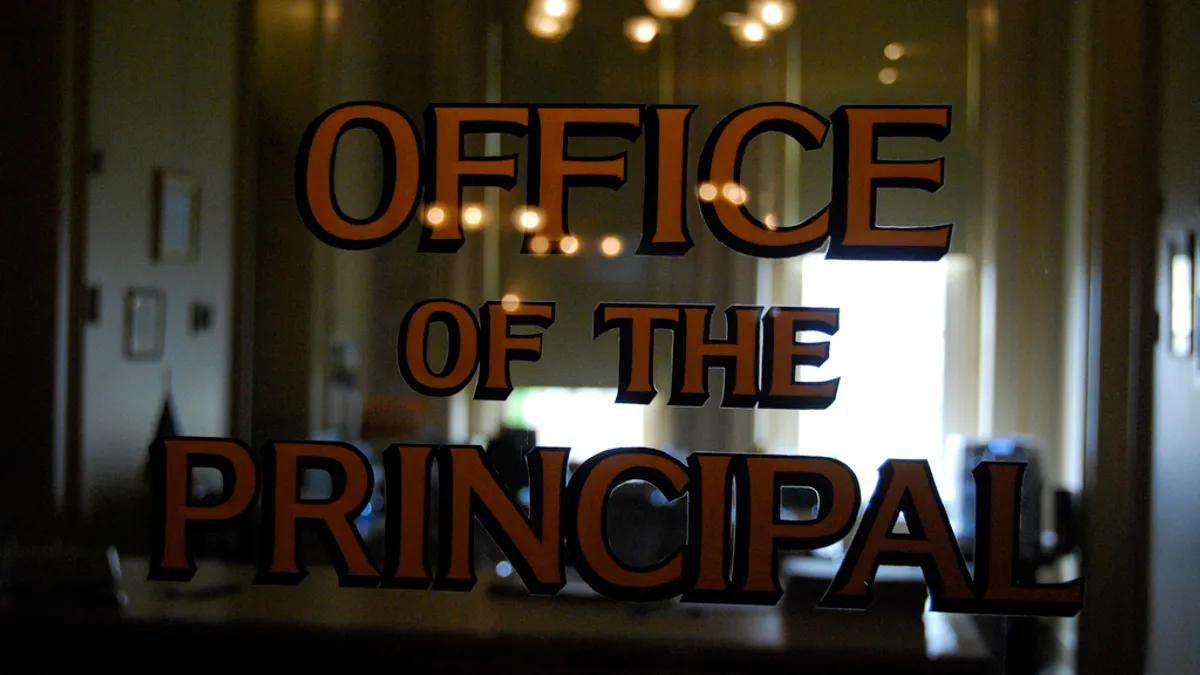Dive Brief:
- U.S. Secretary of Education Betsy DeVos announced on Tuesday the 11 winners of the 2018 Terrel H. Bell Awards for Outstanding School Leadership, according to an Education Department news release. These principals were selected from the 2018 cohort of National Blue Ribbon Schools and will get special recognition at a ceremony on Nov. 7 in Washington, D.C.
- Ten principals received traditional Terrel H. Bell Awards, while Kathy Hurstell Riedlinger, CEO of Lusher Charter School in New Orleans, received a Special Lifetime of Leadership Award. The other recipients are:
- Aisha Thomas of Zach Elementary School in Fort Collins, Colorado
- Nongongoma Majova-Seane of Stanton College Preparatory School in Jacksonville, Florida
- Demetrios Demopoulos of Archimedean Upper Conservatory in Miami
- Jason Lawson of Lake Hills Elementary School in Spring Lake, Michigan
- Reginald Landeau Jr. of MS 216 George J. Ryan School in Fresh Meadows, New York
- Elizabeth Riesenberger of John Foster Dulles Elementary School in Cincinnati, Ohio
- Margaret Egan of Saints Peter and Paul School of West Chester, Pennsylvania
- Diane Jackson of Tigerville Elementary School in Taylors, South Carolina
- Tracey Speaker-Gerstheimer of Northwest Early College High School in El Paso, Texas
- Deana Gonzalez of A.W. Jackson Elementary School in Rosenberg, Texas
-
“We know strong school leadership is a driving force behind ensuring students and teachers succeed,” DeVos said in the release. “I’m pleased to recognize these talented Bell Award winners who are helping to lead needed transformations at the most local level. Through their leadership, vision and effort, countless students – regardless of their family income, race or language proficiency – are able to excel."
Dive Insight:
These outstanding principals come from all over the country, but they have several elements in common: They all strive for excellence, are visionary leaders and work hard to overcome obstacles that stand in the way of success. They come from different backgrounds and work in different school communities, but they all took schools that were not performing as well as they could have been and, by seeing negative elements as challenges instead of obstacles, they helped to turn things around.
The role of a school principal has changed in recent years, causing these leaders to do more than just manage a school or serve as its chief disciplinarian. Instead, they need to be academic leaders who inspire others to work with him or her to create a successful school community. As the Center for American Progress noted in a 2014 article, “The concept of the principal as a building manager has given way to a model where the principal is an aspirational leader, a team builder, a coach, and an agent of visionary change.”
A report by the Wallace Foundation lists five practices that effective principals do well. For one, they shape a vision of academic success for students, and they also create a school climate conducive to education. They cultivate leadership, work to improve instructional practices, and manage people, processes, and data to pave the way for school improvement. These are lofty goals, and principals typically faces a number of struggles along the way. But by focusing on what is important, they stand a better chance of success.







 Dive Awards
Dive Awards





